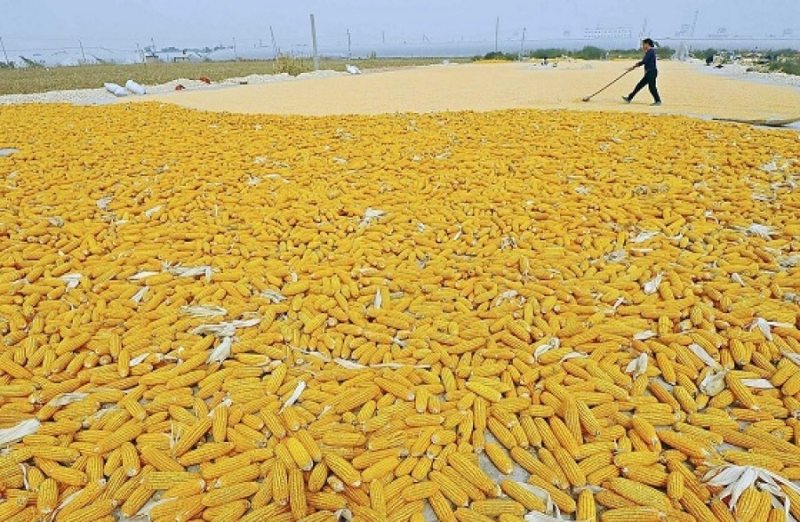Corn prices fall due to low demand from Thailand
Corn prices have declined from between 1,300 kyats and 1,500 kyats per viss to 1,100 kyats per viss. The price is expected to further decline due to low demand, said merchants.
08 May 2023

DMG Newsroom
8 May 2023, Sittwe
Corn prices have declined due to low demand from Thailand and depreciation of the Thai baht, despite the fact that it is corn exporting season currently, according to merchants.
Corn prices have declined from between 1,300 kyats and 1,500 kyats per viss to 1,100 kyats per viss. The price is expected to further decline due to low demand, said merchants.
“The exchange rate was previously 80 kyats per baht. But it is 72 kyats now. So, corn prices have declined. It is unlikely that corn prices will go up in the near future,” said a merchant from Shan State’s Lashio.
Thailand is a major buyer of corn from Myanmar. Corn is also exported to fellow neighbours India, China, Vietnam and Bangladesh.
The price decline is partly attributable to a new trading policy, said merchants.
“To make shipments from Yangon port, exporters have to export a minimum 500 tonnes of corn. So, only companies can afford to do that, and individual merchants can’t. Individual merchants only export directly to Myawaddy. The price gap is also huge,” said another merchant from Lashio.
Myanmar also plans to export 1,000 tonnes of corn to Bangladesh, and exports started in February, according to the Myanmar Corn Association. Myanmar plans to export 4.4 million tonnes of corn to Thailand, India, China, Vietnam and Bangladesh.
There are few corn growers in Arakan State due to the high prices of fertiliser, fuel and labour costs.
Daw Than Than Myint of Gonekyun Village in Mrauk-U Township said she could not afford to expand corn cultivation due to high costs.
“We grow certain varieties that fetch good prices in the domestic market. We only grow corn for one cultivation season — when the rainy season ends and the cold season begins — because it costs a lot of money to grow other times of the year,” she said.
Corn is grown in Ayeyarwady, Sagaing, and Mandalay regions, as well as Kayah and northern and southern Shan states. In some parts of the country, corn is grown twice a year — from October to February and from May to August.
















.jpg)
